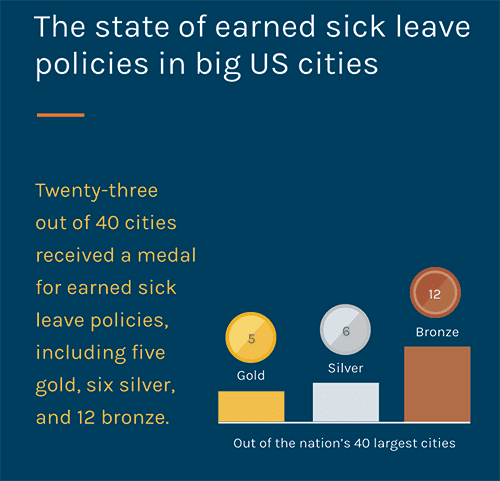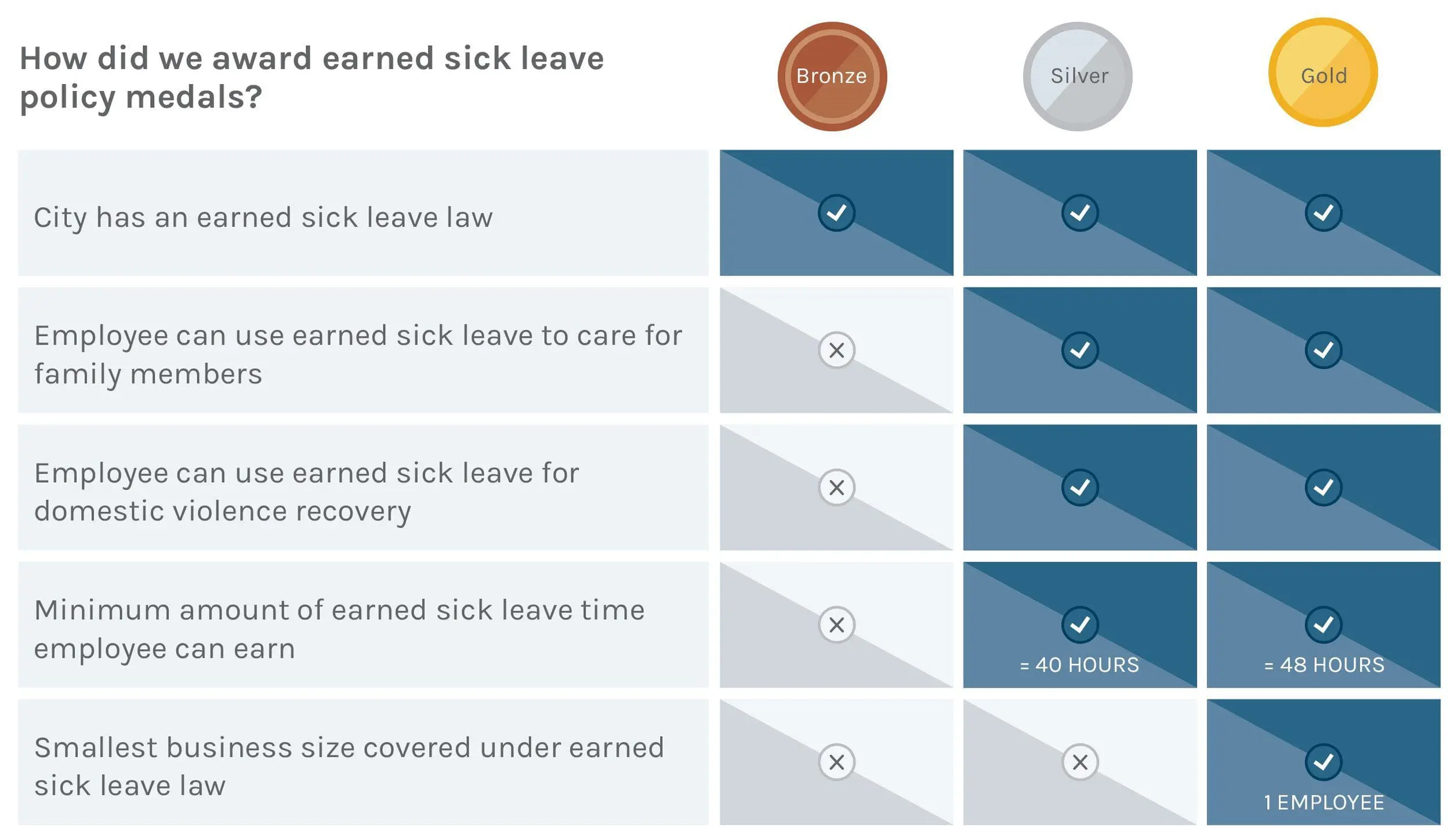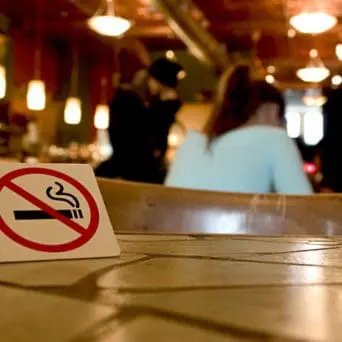Social distancing is our new normal in the wake of the COVID-19 pandemic. This practice is the process undertaken to “restrict when and where people can gather, to stop or slow the spread of infectious diseases.” It is one of a number of actions leaders can take right now to increase the resilience of their communities and make a considerable difference in shaping the outcomes of this pandemic. Another action is to draft or strengthen earned sick leave policies to protect workers when they are currently at risk of contracting COVID-19.
Business and school closures have the unintended consequence of exacerbating long-standing disparities between the haves and the have nots. One common refrain from concerned employees is that they must work in order to make ends meet, even if they are sick, or showing symptoms of COVID-19. This reality begs the question: how can our leaders stop the spread of this disease if one-third of private sector workers and 70 percent of lower-wage workers do not have access to paid leave? CityHealth studied the earned sick leave laws of the largest U.S. cities and found substantial variation among America’s cities when it comes to protections for employees.
Twenty-three of 40 cities received a CityHealth medal for earned sick leave laws, including five gold, six silver, and 12 bronze. Dallas, Detroit, Las Vegas, and San Antonio passed the newest earned sick leave laws in our assessment. Check out how your city rates here.

Why this matters: Without the guaranteed paid time off earned sick leave laws provide, many workers are likely to forgo seeking medical care for themselves and loved ones and continue reporting to work, despite the warnings. That puts all of us at greater risk.
The facts: Access to paid time off helps keep us safe from contagious illnesses like the seasonal flu, or the new coronavirus. This access is largely possible thanks to earned sick leave laws, one of nine policies CityHealth advances to create healthier, thriving cities. These laws require employers to allow people to take the time they need for illness or injury for themselves, their children, or their parents without concern for lost wages or job loss.
Earned sick leave policies help:
- Fight contagious diseases. When people don’t have access to earned sick days, they are 1.5 times more likely to go to work with contagious illnesses (like the coronavirus), three times more likely to forgo medical care for themselves, and 1.6 times more likely to forgo medical care for their families.
- Reduce workplace illness. According to the American Journal of Public Health, access to earned sick leave decreases flu infections in the workplace by nearly six percent.
- Increase productivity. Earned sick days help reduce “presenteeism”—the productivity lost when employees work while sick—which is estimated to cost our economy $160 billion annually.
For more on the evidence, read our fast facts about earned sick leave laws.
The business case: Numerous studies have shown that in the cities and states that have implemented earned sick days, many business owners are supportive of the policy and report that the costs are nonexistent or minimal. For example, in Seattle, 70 percent of business owners favored the city’s earned sick days law one year after it was implemented. Additionally, evidence shows that providing earned sick leave could have saved employers as much as $1.88 billion per year in absenteeism costs from flu-like illnesses.
The bottom line is this: if fewer people come to work sick because they are afforded paid time off, then we reduce the rate of exposure to disease, protecting coworkers and their families, and stemming the spread of illness.
What makes a strong earned sick leave law?
CityHealth assesses the 40 largest U.S. cities on their earned sick leave policies, awarding gold, silver, or bronze medals to cities with strong to passable policies, and no medal to the city policies that do not meet our minimum criteria. We start by looking to see if the city has an earned sick leave law in place at all, then whether employees can use their paid leave to care for family members, as well as the minimum amount of earned sick leave time an employee can earn, and whether the law applies to the smallest businesses.
Only five cities out of 40 have a gold earned sick leave medal, showing that there’s still more work to be done. The need for earned sick leave is urgent—especially for low-income workers, who are the least likely to have this protection and will have to choose between taking a day off when they or a loved one is sick and potentially losing their job. The current fight against the COVID-19 pandemic makes this need even more urgent, and for policymakers who want to do all they can to protect vulnerable workers and families, getting these laws into place as soon as possible is a great first step.

We want to partner with city leaders who seek to create healthier communities. Learn more about how earned sick leave laws help keep us healthy. Our policy brief and fast facts include more statistics, research, and resources about how these laws help to create thriving communities and vibrant cities.





